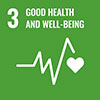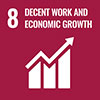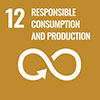Sanitised homes and healthy bodies: reflections on Airbnb’s response to the pandemic
This paper examines some key changes to Airbnb's travel philosophy, protocols and standards since the outbreak of the COVID-19 pandemic. It reflects on how the climate of uncertainty imposed by the global health crisis has induced Airbnb to promote among its users a new ethos of flexibility, adaptability, liability and long-term commitment. In particular, we discuss how new protocols and regulatory measures have engendered a culture of uniformity and transparency regarding issues of health and safety, but also concerning social interactions, personal communication, labour, and the conduct of everyday life of Airbnb's hosts and guests. The article also highlights that the changes implemented by the platform have not gone unchallenged and how some of the protests against the new measures and protocols were manifested via the Airbnb Community Center. We conclude with a few considerations about possible future directions of the Airbnb hospitality machinery and their potential consequences on the post-pandemic landscapes of travel and tourism.
Since the outbreak of the COVID-19 pandemic the future of Airbnb has been at the core of vibrant public and academic debates (see, for example, Dolnicar and Zare 2020; Glusac 2020; Schaal 2020). Whilst some platforms, in particular on-demand delivery platforms, have been able to capitalize on the health crisis through the expansion of their user volume (Bosma et al. 2020), Airbnb has instead found itself caught in the general crisis experienced by the tourism and hospitality industry. This industry is among those most impacted by the virus (UNWTO 2020) as well as being considered a major enabler for the propagation of the virus (Iaquinto 2020). Confined spaces such as airplanes, cruise ships and various forms of tourist accommodation, including “shared homes”, turned out to be potential sites of contagion and were accordingly subjected to strict regulation. Since the spreading of the virus globally, Airbnb, like most other tourism businesses, has consequently experienced bookings being cancelled en masse due to restrictions on individual mobility, lockdowns, closure of national borders, and the rules of social distancing imposed by the authorities of the countries affected by the epidemic. Huge losses in revenues prompted the company to suspend all its marketing activities, impose salary cuts and lay off about 25% of its staff, among other forms of crisis management (see Bosma 2020). Yet, despite the impact of the pandemic on its operations, the platform is still considered one of the most valuable hospitality firms globally in terms of market capitalization, something confirmed by the success of its initial public offering on the stock market in December 2020 (Allyn and Schneider 2020). Whilst keeping up with government restrictions, Airbnb has in fact managed to somewhat reinvent itself by exploring new ways of capitalising on the everyday lives and intimate spatialities of its users by altering its products and services. As Sarah Barns (2020, 101) has observed, there is a need to stay attentive to the changes that platforms undergo since those changes are not just “a generalised condition of platform capitalism” but a set of strategic interventions on the part of those companies in order to exert and maintain control over their markets.
Building upon our previous work on Airbnb (Roelofsen 2018; Roelofsen and Minca 2018; Minca and Roelofsen 2019) and other tourism platform studies, in this intervention we briefly discuss how the pandemic has put the very idea of “home-sharing” into question and has given rise to a new “Airbnb hospitality culture” predicated on uncertainty, contagion and sanitization. We do so by examining some of the major changes to Airbnb’s “travel philosophy”, protocols and standards, terms and conditions, and digital infrastructure over the last year. We also draw on the analysis of 79 blogposts published by the company in the Airbnb Newsroom between 9 October 2019 and 27 January 2021 in which these major changes are explained in detail. We put this analysis in dialogue with an examination of 31 selected blogposts published by Airbnb hosts in the Airbnb Community Center (hereafter ACC), which challenged Airbnb’s decisions and garnered a total of more than 1700 responses.
Airbnb’s first formal reaction to the pandemic came near the end of February 2020. On the ‘Airbnb News’ site the company announced that it was closely monitoring the outbreak of the coronavirus and focused on providing “emergency relief” in response to bookings that were cancelled en masse (Airbnb 2020). By activating their existing “extenuating circumstances policy”, Airbnb allowed hosts and guests to cancel eligible reservations through its booking application without the usual charge or penalty. This intervention had an adverse impact in particular on those hosts who had previously upheld moderate or strict cancellation policies and would normally receive (part) of a guest’s payment regardless of their stay.
Consequently, Airbnb’s decision has provoked a major upheaval among a large group of hosts who resorted to the ACC, among other outlets, to vent their frustration. The ACC was populated by discussions that questioned if and how the company should be held accountable for compensating such losses. A popular post that generated a thread of more than 600 responses for example claimed that the costs of cancellations should at least be equally shared between hosts and guests. The discussion revealed how many hosts politicized the circumstances and used the social media and the ACC to collectively direct attention to the functioning and the responsibilities of the platform. This was a (moderately successful) strategy that hosts had already employed in the past when making claims about how their work was configured, regulated, and organized by Airbnb’s software (see Minca and Roelofsen 2019; but also, Wilson et al. 2021). The major critique transpiring through many of the most recent posts was that, whilst Airbnb maintained the right to control, (re)direct and capitalize on the “home-sharing” business that was generated through its software, at the same time, it absolved itself from taking responsibility in case of unforeseen circumstances and refrained from offering the desired support or protection to its hosts. A number of hosts started petitions in order to hold the company accountable, while others expressed their intention to move their “home-sharing” business to other short-term rental platforms and encouraged other members to do the same. What the posts in the ACC inadvertently also revealed was that Airbnb’s user base was populated by people who might be considered “professionals” in different capacities (Bosma 2021; Semi and Tonetta 2020). In previous self-commissioned studies, the company has often claimed that its users were predominantly “hosts who share the home in which they live” to gain supplemental income (e.g. Airbnb 2017a; 2017b; 2018). But what emerged from the blogposts was that numerous members involved in this discussion solely or substantially relied on their Airbnb-related income for a living, some of whom were managing multiple listings that were exclusively rented out to tourists (see Gil and Sequera 2020; Cocola-Gant and Gago 2019).
Arguably, this vibrant reaction has led Airbnb to reconsider its emergency strategy and formulate responses to somehow reconcile with its userbase. Accordingly, a few weeks later Airbnb apologetically established a $250 million relief fund to partially compensate the hosts most affected by the decision to suspend the cancellation policy (Airbnb 2020a). Additionally, it created a $10 million Superhost Relief Fund for hosts who had become “crucially reliant” on Airbnb income “to make ends meet” (ibid.). Eventually, some 8700 Superhosts were funded through this fund and a selection of compensated individuals were showcased in a post on Airbnb News (Airbnb 2020b). In the same post, the company’s CEO Brian Chesky reassured the hosts that Airbnb was committed “to rebuild our partnership” and emphasised how Airbnb homes could also be used as an invaluable response to the crisis. Hosts were in fact encouraged to offer their housing for free or for a small fee to healthcare providers, relief workers and first responders to the pandemic. Although the extent to which this philanthropic gesture was taken up by hosts is still to be researched, it was emblematic of Airbnb, as an ‘urban institution’, to promote the hosts’ properties and hospitality as essential urban assets in times of crisis (see also Van Doorn 2020). In doing so, Airbnb has implicitly manifested its role as a powerful social player in the governance of many cities, also in times of social crisis like the one provoked by the pandemic.
In the wake of this major controversy, and with the prospect of operating within a new landscape of COVID-induced risk, the company also dedicated several posts to clarify and reaffirm what its actual responsibilities to users were. Users of the platform were informed that Airbnb upheld an “asset-light” business model that was “community-based” and “powered by people”, unlike the traditional hierarchical one-sided business model that belied “a large, asset heavy vertically integrated corporation capturing the vast majority of the economics being generated” (Airbnb 2020c). Airbnb’s posts made clear that the company was mainly accountable for its digital “infrastructure”. As a provider of software for a “two-sided marketplace” made up of hosts and guests it was “committed to doing everything [it] can to fairly support both parties, consistent with how this two-sided marketplace works” (ibid.). Airbnb’s insistence on its exclusive provision of software and the ambiguity surrounding the nature of its “support” to users reflects similar strategies that other on-demand platforms have employed in the past to force users to bear the risks and the responsibilities of the work from which these platforms derived profit (see van Doorn 2017).
Since the onset of the pandemic, Airbnb has implemented other changes to its digital infrastructure to enforce a higher degree of flexibility and “professionalism” among its users whilst, at the same time, further absolving itself from liability. For instance, it has introduced a suite of tools and programmes called “More Flexible Reservations”, which was developed to “help hosts and guests navigate uncertainty and meet their needs to cancel or postpone their hosting and travel plans” (Airbnb 2020d). Hosts that adopted the most “flexible” cancellation policies under this scheme were promised rewards by Airbnb through improved “visibility for these listings to drive new bookings” (ibid.). Guests would be equipped with new search filters that would allow them to search for listings upholding the most flexible cancellation policies, making invisible in this way those listings/hosts who could/would not bear the burden of last-minute cancellations and foregone income. As such, Airbnb has nudged hosts to take on more risks and responsibilities in a new era marked by uncertainty and, in return, promised better rankings in the search engines results.
Another notable change observed in Airbnb’s marketing material and communication was its promotion of “long-term rentals”. Whilst guests previously used to book with Airbnb “to immerse themselves in new communities and explore new cultures on vacation”, the platform has recently argued that guests were looking for long-term rentals that “support remote working and temporary relocations. Working from home is becoming working from any home” (Airbnb 2020e, italics added). Arguably, the most popular listings in pandemic times were those available for longer periods of time, “private and socially distanced” and “pet-friendly”. Airbnb thus urged hosts to consider lengthening the period of their bookings, as well as to offer “self-check-in” modalities to their guests, in this way minimizing in-person contacts. However, as ACC discussions demonstrate, this was not an option for hosts who did not own properties aligning to the new model. Those who offered rooms or beds within their homes and could not be socially and physically distanced from their guests at all times, did not fit Airbnb’s new picture of “working from any home”. Similarly, hosts in many cases did not necessarily wish to have guests for longer periods, particularly under the uncertain conditions created by the pandemic, as evidenced in numerous blogposts on the ACC. The implications of this shift in terms of the composition of Airbnb’s userbase and types of listings remains to be studied. However, what can be said at this stage is that Airbnb’s recent overt turn to “long-term stays” clearly falls in line with its development of a “platform-centric ecosystem” to the advantage of a specific group of hosts: those who are able to capitalize on housing assets in ways that generate a more reliable income stream, and subsequently, expand the scale and revenues of Airbnb’s operations (van Doorn 2020, 13; see also Bosma 2021 on “privileged professionalization”).
Another major change that we have observed over the last year was Airbnb’s renewed focus on labour practices. There have been in fact numerous attempts at the “professionalization” of domestic work and of the interactions between users in the form of new protocols and standards and changes to the platform’s infrastructure. By “professionalization” we mean here a specific strategy that Airbnb has rolled out to redefine and control workplace practices in response to a number of social and economic forms of pressures, most evidently the global health crisis provoked by COVID-19. On 27 April 2020, Airbnb announced that it would implement a number of new health and safety protocols in the months to come, in addition to expecting its users to adhere to the local and national governments’ travel advice, laws and policies (Airbnb 2020f). To continue using the platform, hosts and guests were made to agree that they would wear a mask or face covering when interacting in person and maintain a distance of 6 feet (2 metres) from each other at all times. These new rules provoked significant discussion among hosts in locations where the virus had not prevailed to such extent and who were subject to less severe local health and safety measures (e.g. New Zealand).
All hosts were additionally encouraged to commit to the 5-step “Enhanced Cleaning Process”, which was made compulsory by 20 November 2020 (except for hosts in China; on Airbnb China see also Minca and Roelofsen 2019). Those hosts who would not attest to such safety practices, including the “Enhanced Cleaning Process”, were informed that they might be unable to accept new reservations in the future, have their listings suspended, or be removed from Airbnb (Airbnb 2021). Guests who would (repeatedly) not comply with the safety practices would instead not be eligible for a refund if their hosts cancelled the reservation for this reason. Finally, Airbnb “hosts” were instructed to ensure that their “rental team” and cleaning partners would also follow the new protocols. After committing to the protocol, hosts would receive a special “highlight” in the form of a star in their listing overview (Airbnb 2020g), similar to symbols used in other “status” programmes, like the one rewarding the “Superhosts” (see Roelofsen and Minca 2018). Guests, on the other hand, would be able to identify and book accommodations included in this programme soon after the hosts enrolled.
Control and determination of the work modalities in the Airbnb “ecosystem” is thus implemented by prescribing the scope, scale and boundaries of domestic work and hospitality. Airbnb now specifies what has to be cleaned, how often, by whom and with which material. It also provides specific instructions on the social interactions between hosts and guests: as noted above, they must avoid physical contact, remain distant or avoid in-person contact at all times. In addition, the company has announced that it has partnered with professional cleaning services platforms, making it “quicker and easier for [hosts] to offer an enhanced clean”. It might not take long before hosts are “rewarded” for outsourcing this kind of labour in similar ways as those hosts who have been “rewarded” for implementing the “Enhanced Cleaning Protocol”: guests’ search functions, we presume, would then soon allow them to prioritize listings that have been cleaned by Airbnb-defined “professionals”. Like Hyatt, Hilton and other major hotel chains on the World Travel and Tourism Council’s website, Airbnb has now committed to uniform health and hygiene protocols for what has been defined as the “new normal” (WTTC 2021). The platform has also partnered with acclaimed chemical companies such as Diversey, RB and Dettol and has encouraged hosts to buy their products and clean their homes with their detergents (Airbnb 2020h; 2021a). While being associated with these companies’ public images may be helpful in building trust and credibility in times of pandemic, at the same time this strategy seems to contradict Airbnb’s business model which for over a decade was built on the romanticized idea of sleeping in strangers’ beds and homes rather than in standardized (and sanitized) hotel rooms (Minca and Roelofsen 2019).
There is an even a deeper level of sanitization of the home environment, which has to do with the actual presence of the virus. In fact, when hosts or guests have symptoms or are tested positive for COVID-19 they are advised to follow a set of steps that Airbnb has set out for them (Airbnb 2020i). These steps include different pathways depending on whether hosts and guests were in close contact with each other and/or in the enlisted space. In case they expect to be infected or they have tested positive both user groups are advised to get medical attention, contact the local health authorities and inform Airbnb about their condition (ibid.). The list of steps that follow this situation is extensive and we do not have space in this paper to recall them in detail. However, in several instances, user accounts are suspended so hosts and/or guests cannot book new stays through Airbnb for a length of time, and their accounts will be reinstated only after providing Airbnb with valid confirmation that they are “allowed to host [or travel] again”. Both hosts and guests are also advised to “redact sensitive information” and not to “provide health-related information (such as medical certificates)” (ibid.); however, this allows Airbnb to obtain and collect sensitive data concerning the health history of their members.
Additionally, the company has recently announced the development of a Health Safety Attestation, that is, a (for now) voluntary “tool” that enables hosts “to request that guests attest they are clear of common COVID-19 symptoms and have not knowingly been recently exposed to COVID-19” (Airbnb 2021b). As such, the health crisis has opened up new avenues for the extraction and appropriation of (biometric) data of hosts and guests in ways that respond to the principle of self-disciplining and self-management of the bodies of the members of the platform (see Roelofsen and Minca 2018). The rhetoric based on community (of travellers) building and on the promise of ‘living like a local’ have thus been replaced by a particular emphasis on sanitisation and distancing, together with the increasing standardization of a set of practices that have transformed what used to be a nudged form of biopolitics of the intimate spatialities of the home into a deeper form of regulation of the lives and the social relationship of hosts and guests.
In light of the above considerations a few concluding notes are perhaps in order. First, the emergency situation imposed by the pandemic has inadvertently highlighted how Airbnb has exempted itself from liability by suspending existing rules regarding strict cancellation policies – and by placing the adverse consequences of the pandemic predominantly on the hosts. This has provoked major upheaval among its hosts who have collectively reacted against such changes, with moderate success. At the same time, the crisis has afforded the platform to design, implement and facilitate an emergency-inspired cancellation policy which has placed further demands on hosts to become infinitely flexible and liable. Moreover, it has exerted (soft) power over the hosts to take up this cancellation policy by amending the guests’ search functions, in this way privileging on their website those listings that adhere to the new policy.
Secondly, the concepts of home and hospitality, which have long represented the key elements of identity in Airbnb’s travel philosophy, have dramatically changed with the advent of the pandemic. Originally, the company presented hospitality in people’s homes as a true authentic and original experience, contrary to hospitality offered by hotels and other similar structures. Airbnb used to emphasize in particular the field of possibility that this new mode of travelling was offering in terms of interaction with the local life and the residents. However, with Airbnb’s enforcement of standardized forms of home sanitisation, the presence of strangers in the home (previously celebrated as a point of attraction) has now been put under much closer scrutiny, while a level of control that is, to some extent, comparable to the control employed in commercial hospitality was implemented.
What is more, recent changes to the platform’s infrastructure and protocols allow now for easier exposure, extraction and appropriation of data related to hospitality work – and in particular to cleaning and in-person interactions. Outsourcing labour to Airbnb-endorsed professional cleaning services companies may thus become a point of controversy for hosts who (can only afford to) clean themselves or have outsourced labour to other companies.
This is likely to change the contractual relations and power dynamics between Airbnb and both property management companies and professional cleaning companies, which have previously been able to set their own terms and conditions of work in the short-term rental business. These developments also raise important questions about how the standardization and subcontracting of labour through Airbnb will trouble existing (national) legislation and guidelines regarding fair work and forms of labour protection in tourism (see also Roelofsen and Minca 2018; Ioannides et al. 2021). Whilst scholarly work on Airbnb has often emphasised the creation of short-term rental policy to protect housing, enforce health and safety standards and taxation, we would like to argue that there remains much scope to examine working conditions and compliance with laws and legislation regarding labour – particularly given the existing “prevalence of low pay, exploitation and weak protections across the tourism and hospitality industries” (Bianchi and de Man 2021).
Another point deserving further investigation is the increased tendency on the part of Airbnb to stimulate among its members (and accommodate) the provision of mid-term and long-term stays to “guests” who may live in close proximity. While Airbnb has long claimed to be part of the tourism and hospitality industry, is it now overtly converting into a ‘platform real estate’ (Fields and Rogers 2019) providing rental spaces for all purposes? And how would this affect the provision of housing, the broader housing markets and property prices in different contexts? For example, we have noticed realtors speculating in blogposts about the increased value of their property based on a consistent “track record” of 5-star Airbnb ratings. What might the consequences of this shift be compared to the impact of short-term rentals in cities? And who will be the new “hosts” on the platform in the years to come? Will the new protocols be unsustainable and intolerable for those hosts who neither have the type of property nor the time or money to invest in the kind of labour that Airbnb’s protocols are now demanding? Returning to our initial question about the future of Airbnb, what transpires from our brief study is that, despite all the difficulties relating to the restriction on mobility of tourists in times of pandemic, new opportunities have emerged from the crevices of this crisis and that it remains important to stay attentive to the platform’s role in the transformation of the concepts of home and everyday life, but also of labour in tourism and of the housing market.
AIRBNB. Overview of the Airbnb Community in Berlin. [online]. 2016. Available at: https://www.airbnbcitizen.com/wp-content/uploads/2016/04/airbnb-community-berlin-en.pdf
AIRBNB. Read the report: Airbnb, Housing, and the City of Cambridge. [online]. 2017a. Available at: https://news.airbnb.com/read-the-report-airbnb-housing-and-the-city-of-cambridge/
AIRBNB. The Positive Impacts of Home Sharing in Copenhagen. [online]. 2017b. Available at: https://news.airbnb.com/the-positive-impacts-of-home-sharing-in-copenhagen/
AIRBNB. Airbnb’s Work to Protect its Community During the Coronavirus Outbreak. [online]. 2020. Available at: https://news.airbnb.com/update-on-extenuating-circumstances-policy-for-coronavirus/
AIRBNB. A letter to hosts. [online]. 2020a. Available at: https://news.airbnb.com/a-letter-to-hosts/
AIRBNB. Superhost Relief Fund Provided Grants to 8,700 Homes and Experience Hosts. [online]. 2020b. Available at: https://news.airbnb.com/superhost-relief-fund-provided-grants-to-8700-homes-and-experience-hosts/
AIRBNB. A People-to-People Marketplace. By Greg Greeley. [online]. 2020c. Available at: https://news.airbnb.com/a-people-to-people-marketplace/
AIRBNB. More Flexible Reservations in Times of Uncertainty. [online]. 2020d. Available at: https://news.airbnb.com/more-flexible-reservations-in-times-of-uncertainty/
AIRBNB. Work From Anywhere: How Airbnb & Guests are Approaching Remote Working. 2020e. [online]. Available at: https://news.airbnb.com/work-from-anywhere-how-airbnb-guests-are-approaching-remote-working/
AIRBNB. Airbnb’s Enhanced Cleaning Initiative for the Future of Travel. [online]. 2020f. Available at: https://news.airbnb.com/our-enhanced-cleaning-initiative-for-the-future-of-travel/
AIRBNB. Getting started with the 5-step enhanced cleaning process. [online]. 2020g. Available at: https://www.airbnb.com/resources/hosting-homes/a/getting-started-with-the-5-step-enhanced-cleaning-process-186
AIRBNB. Introducing Airbnb Enhanced Clean. [online]. 2020h. Available at: https://news.airbnb.com/introducing-airbnb-enhanced-clean/
AIRBNB. Your guest or host may have COVID-19. Now what? [online]. 2020i. Available at: https://www.airbnb.com/resources/hosting-homes/a/your-guest-or-host-may-have-covid-19-now-what-168
AIRBNB. What is Airbnb’s 5-step enhanced cleaning process? [online]. 2021. Available at: https://www.airbnb.com/help/article/2809/what-is-airbnbs-5step-enhanced-cleaning-process
AIRBNB. Partnering with RB, the Makers of Lysol®, to Help Protect Hosts and Guests. [online]. 2021a. Available at: https://news.airbnb.com/partnering-with-rb-the-makers-of-lysol-to-help-protect-hosts-and-guests/
AIRBNB. Airbnb Announces Health Safety Attestation to Support Responsible Travel. [online]. 2021b. Available at: https://news.airbnb.com/airbnb-announces-health-safety-attestation-to-support-responsible-travel/
ALLYN, Bobby and SCHNEIDER, Avie. Airbnb now a $100 billion company after stock market debut sees stock price double. In: NPR [online article]. 2020. [Accessed: 9 February 2021].
BARNS, Sarah. Platform Urbanism. Singapore: Springer Singapore, 2020. ISBN-10: 9813297271 ISBN-13: 9789813297272. DOI:https://doi.org/10.1007/978-981-32-9725-8
BIANCHI, Raoul V. and DE MAN, Frans. Tourism, inclusive growth and decent work: a political economy critique. In: Journal of Sustainable Tourism. 2021. Vol. 29, nos. 2-3, pages 353-371. ISSN 0966-9582. DOI: https://doi.org/10.1080/09669582.2020.1730862
BOSMA, Jelke. Airbnb and Covid-19: Capturing the Value of the Crisis. In: Platform Labor [online article]. 2020. [Accessed: 9 February 2021].
BOSMA, Jelke. Platformed professionalization: Labor, assets, and earning a livelihood through Airbnb. 2021. University of Amsterdam, Centre for Urban Studies Working Paper Series, 49.
BOSMA, Jelke, MOS, Eva and VAN DOORN, Niels. Disrupting ‘Business as Usual’: COVID-19 and platform labour. In: Futures of Work. 2020. [online article]. No. 15. [Accessed: 9 February 2021].
COCOLA-GANT, Agustin and GAGO, Ana. Airbnb, buy-to-let investment and tourism-driven displacement: A case study in Lisbon. In: Environment and Planning A: Economy and Space. 2019. DOI: https://doi.org/10.1177%2F0308518X19869012
DOLNICAR, Sara and ZARE, Samira. COVID19 and Airbnb – Disrupting the Disruptor. In: Annals of Tourism Research. July 2020. ISSN: 0160-7383. DOI: https://doi.org/10.1016/j.annals.2020.102961
FIELDS, Desiree and ROGERS, Dallas. Towards a Critical Housing Studies Research Agenda on Platform Real Estate. In: Housing, Theory and Society. 2021. Vol. 38, no. 1, pages 72-94. ISSN 1403-6096. DOI: https://doi.org/10.1080/14036096.2019.1670724
GIL, Javier and SEQUERA, Jorge. The professionalization of Airbnb in Madrid: far from a collaborative economy. In: Current Issues in Tourism. May 2020. ISSN 1368-3500. DOI: https://doi.org/10.1080/13683500.2020.1757628
GLUSAC, Elaine. In a Changed World for Travel, What Does Airbnb’s Future Hold? New York Times [online article]. 2020. [Accessed: 9 February 2021].
IAQUINTO, Benjamin Lucca. Tourist as vector: Viral mobilities of COVID-19. In: Dialogues in Human Geography. 2020. Vol. 10, no. 2, pages 174-177. ISSN: 2043-8206. DOI:https://doi.org/10.1177%2F2043820620934250
IOANNIDES, Dimitri, GYIMÓTHY, Szilvia and JAMES, Laura. From liminal labor to decent work: A human-centered perspective on sustainable tourism employment. In: Sustainability. 2021. Vol. 13, no. 2, pages 1-15. ISSN: 2071-1050. DOI: https://doi.org/10.3390/su13020851
MINCA, Claudio and ROELOFSEN, Maartje. Becoming Airbnbeings: on datafication and the quantified Self in tourism. In: Tourism Geographies. 2019. ISSN 1470-1340. DOI: https://doi.org/10.1080/14616688.2019.1686767
ROELOFSEN, Maartje. Performing ‘home’ in the sharing economies of tourism: The airbnb experience in Sofia, Bulgaria. In: Fennia. 2018. Vol. 196, no. 1, pages 24-42. ISSN: 0015-0010. DOI: https://doi.org/10.11143/fennia.66259
ROELOFSEN, Maartje and MINCA, Claudio. The Superhost. Biopolitics, home and community in the Airbnb dream-world of global hospitality. In: Geoforum. 2018. Vol. 91, pages 170-181. ISSN: 0016-7185. DOI: https://doi.org/10.1016/j.geoforum.2018.02.021
SCHAAL, Dennis. The Future of Short-Term Rentals After the Pandemic and an Airbnb IPO. In: Skift [online article]. 2020. [Accessed: 9 February 2021].
SEMI, Giovanni and TONETTA, Marta. Marginal hosts: Short-term rental suppliers in Turin, Italy. In: Environment and Planning A. 2020. DOI: https://doi.org/10.1177%2F0308518X20912435
UNWTO. How are countries supporting tourism recovery? In: UNWTO Briefing Note – Tourism and COVID-19. 2020. Issue 1, no. 2, pages 1-28. ISBN 9789284421886. DOI: https://doi.org/10.18111/9789284421893
VAN DOORN, Niels. A new institution on the block: On platform urbanism and Airbnb citizenship. In: New Media & Society. 2020. Vol. 22, no. 10, pages 1808-1826. ISSN: 1461-4448. DOI: https://doi.org/10.1177/1461444819884377
VAN DOORN, Niels. Platform labor: on the gendered and racialized exploitation of low-income service work in the ‘on-demand’ economy. In: Information, Communication & Society. 2017. Vol. 20, no. 6, pages 898-914. ISSN: 1461-4448. DOI: https://doi.org/10.1080/1369118X.2017.1294194
WILSON, Julie, GARAY-TAMAJON, Lluís and MORALES-PEREZ, Soledad. (2021). “Politicising platform-mediated tourism rentals in the digital sphere: Airbnb in Madrid and Barcelona. In: Journal of Sustainable Tourism. ISSN: 0966-9582. DOI: https://doi.org/10.1080/09669582.2020.1866585.
WTTC. Safe Travels: Global Protocols & Stamp for the New Normal. In: World Travel and Tourism Council. [online article]. 2020.
ROELOFSEN, Maartje; MINCA, Claudio. Sanitised homes and healthy bodies: reflections on Airbnb’s response to the pandemic. Oikonomics [online]. May 2021, no. 15. ISSN: 2339-9546. DOI: https://doi.org/10.7238/o.n15.2104
ODS




 Maartje Roelofsen
Maartje RoelofsenPostdoctoral researcher at the Faculty of Economics and Business at the Universitat Oberta de Catalunya in Spain. Her research has investigated the socio-spatial impacts of digital technologies, particularly within the realm of tourism. Taking Airbnb as a case study, she has explored the platform’s role in transforming ideas and practices of/at the home. More recently she has focused on how users of the platform assert their political agency to challenge and change the platform’s modes of governance.
 Claudio Minca
Claudio MincaProfessor of Geography at the Department of History and Cultures at the University of Bologna in Italy. His research centres on three major themes: the spatialization of (bio)politics; tourism and travel theories of modernity; and the relationship between modern knowledge, space and landscape in postcolonial geography. Recently he has been working on camp and carceral geographies, with a particular focus on the archipelago of refugee camps in Serbia and the Balkan region. He is currently a Visiting Professor at the Faculty of Economics and Business at the Universitat Oberta de Catalunya.



